Many parents of Class 6–12 children wonder if a boarding school in India is right for their family. Unfortunately, outdated ideas can create needless anxiety. In reality, modern residential schools (especially top CBSE boarding schools and residential schools in India) offer safe, supportive, and holistic environments. For example, Career Point Gurukul in Mohali – a CBSE-affiliated boarding school – emphasizes academic excellence and “holistic growth”. This blog addresses ten common myths head-on, reassuring parents with facts and examples. Throughout, we also note how progressive schools like Career Point Gurukul debunk these myths through modern infrastructure, values, integrated NEET/IIT coaching, round-the-clock safety, and a balanced lifestyle.
Myth #1: Boarding Schools Are Only for Troubled or Unruly Children
- Myth #1: Boarding Schools Are Only for Troubled or Unruly Children
- Myth #2: Boarding Schools Are Unsafe for Students
- Myth #3: My Child Will Be Lonely and Cut Off from Family
- Myth #4: Boarding Schools Are Only for the Rich/Elite
- Myth #5: Boarding Schools Only Focus on Academics (No Holistic Development)
- Myth #6: Boarding Schools Are Overly Strict with No Freedom or Fun
- Myth #7: Boarding Schools Have Outdated Facilities and Lack Modern Technology
- Myth #8: Boarding Cuts Children Off from Parents (No Communication)
- Myth #9: Boarding Schools Don’t Prepare Students for Competitive Exams (NEET/IIT-JEE)
- Myth #10: Boarding Schools Are Not Safe/Appropriate for Girls (or Distrust School Values)
- Conclusion
- FAQ
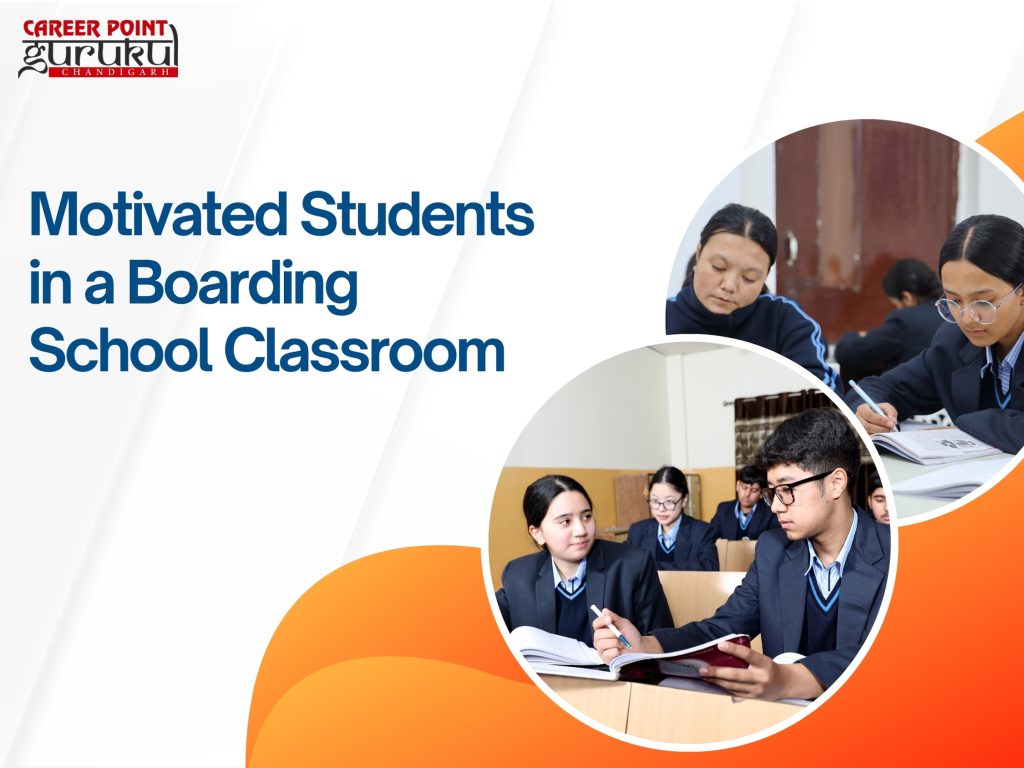
Truth: Not at all. Boarding schools attract high-achieving, motivated students seeking a richer education. In fact, many boarding programs specifically target students already “doing generally well” who want new challenges. As one boarding-school blog explains, these schools are designed to “prepare students for college through rigorous academics” and to make each child “self-dependent”. Boarding school life teaches sharing and teamwork, not just discipline. Career Point Gurukul, for instance, welcomes students of all backgrounds and focuses on nurturing responsibility and values, not “troubled” behavior. Such schools are known for high-quality education and wonderful extracurricular activities, not for reforming misbehaving kids.
Myth #2: Boarding Schools Are Unsafe for Students
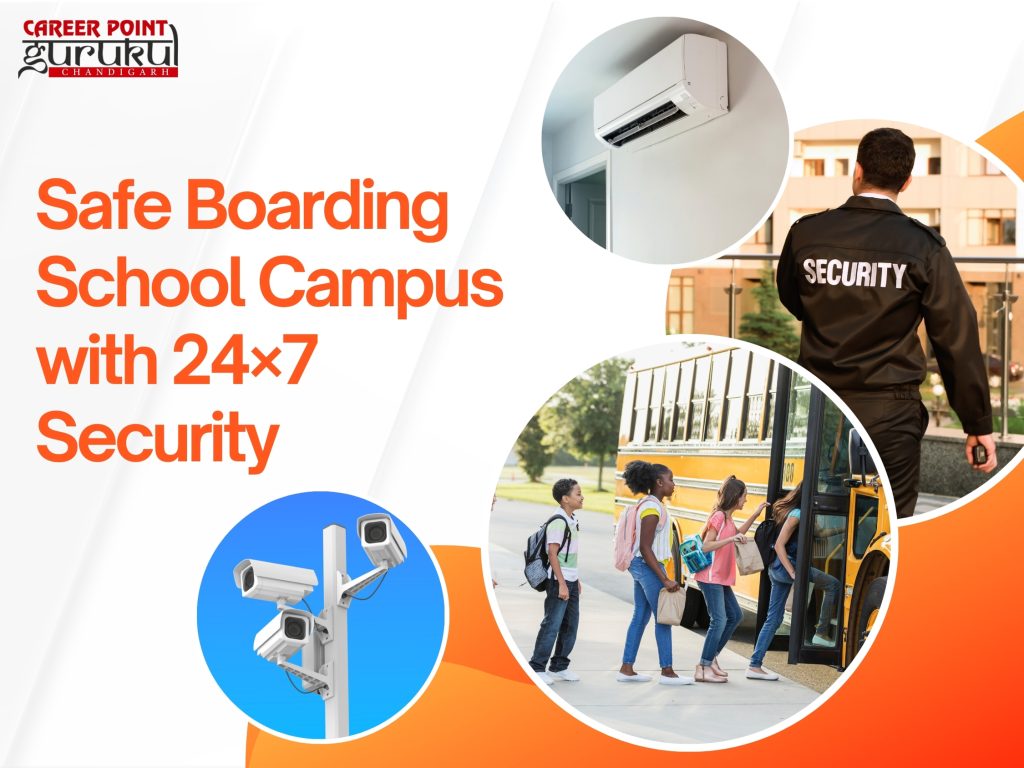
Truth: Parents’ #1 concern – safety – is taken very seriously at top schools. Reputable boarding schools in India invest heavily in security. For example, Career Point Gurukul’s campus is equipped with “24 hrs Security Services” and “Multi Layered Security” measures. Many schools have fenced campuses, ID cards, CCTV, secure access, and trained dorm staff. As the Schools of Dehradun blog notes, boarding schools “take your child’s safety very seriously”. In practice, that means 24/7 guards, patrolling, and strict check-ins. At Jain International (JIRS) – often ranked among safe boarding schools – the infrastructure is “designed to handle all aspects” of co-ed life, with separate girls’ accommodations, fenced perimeters, and round-the-clock guards. Bullying and violence are not tolerated; instead, schools enforce clear codes of conduct and invest in student well-being. In short, modern boarding schools provide a secure, supervised environment that often exceeds the safety of many day schools.
- Campus Security: Most boarding schools have enclosed grounds, CCTV, and controlled entry. Career Point Gurukul explicitly advertises 24/7 security staff and multiple checkpoints.
- Dedicated Staff: Trained houseparents, counselors and dorm managers live on campus and provide close supervision and care.
- Protective Policies: Anti-bullying rules, emergency drills, and health staff are standard. Even for girls, special measures are routine – JIRS, for instance, “ensure[s] our girl students are accommodated protectively” with fully fenced hostels and female staff.
Because of these measures, many parents end up calling their child’s boarding school one of the safest places they’ve known. Boarding students can learn and play without undue fear, in what are often dubbed safe boarding schools by education experts.
Myth #3: My Child Will Be Lonely and Cut Off from Family
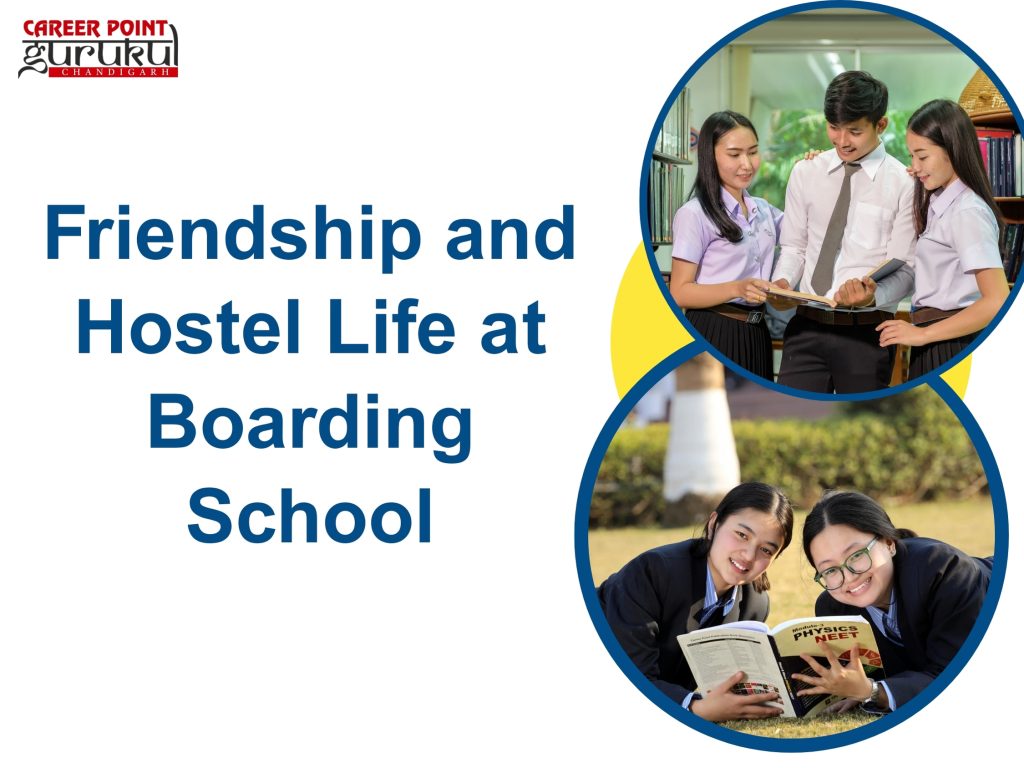
Truth: On the contrary, boarders tend to build lifelong friendships and stay very connected with family. When a child first feels homesick, they quickly find support among dozens of peers going through the same experience. As one boarding alumna recalls, over 30 students in her dorm felt the same homesickness “and that made it easier… We bonded for life because we all missed home, and only had each other’s shoulders”. Rather than isolating a child, boarding life creates a “second family” of classmates, teachers and house-parents.
Moreover, modern technology and school policies make it easy to stay in touch. Many boarding schools give students regulated Internet access and phone usage. Parents often Skype, message or email with kids every day. BoardingSchoolsOfIndia explains that today’s boarders can usually stay in “daily contact with their parents” thanks to these tools. Career Point Gurukul even offers parent portals and weekly updates so families are always in the loop. The result? Children feel supported – not alone – knowing family is just a call away, and they carry on rich social lives in the dorm, cafeteria, clubs and sports teams.
While a child will naturally miss home at first, boarding schools actively counter loneliness by building community. Students live in close-knit hostels and join clubs, teams and activities together. By making best friends and enjoying group events, most kids quickly feel happy and included.
Myth #4: Boarding Schools Are Only for the Rich/Elite
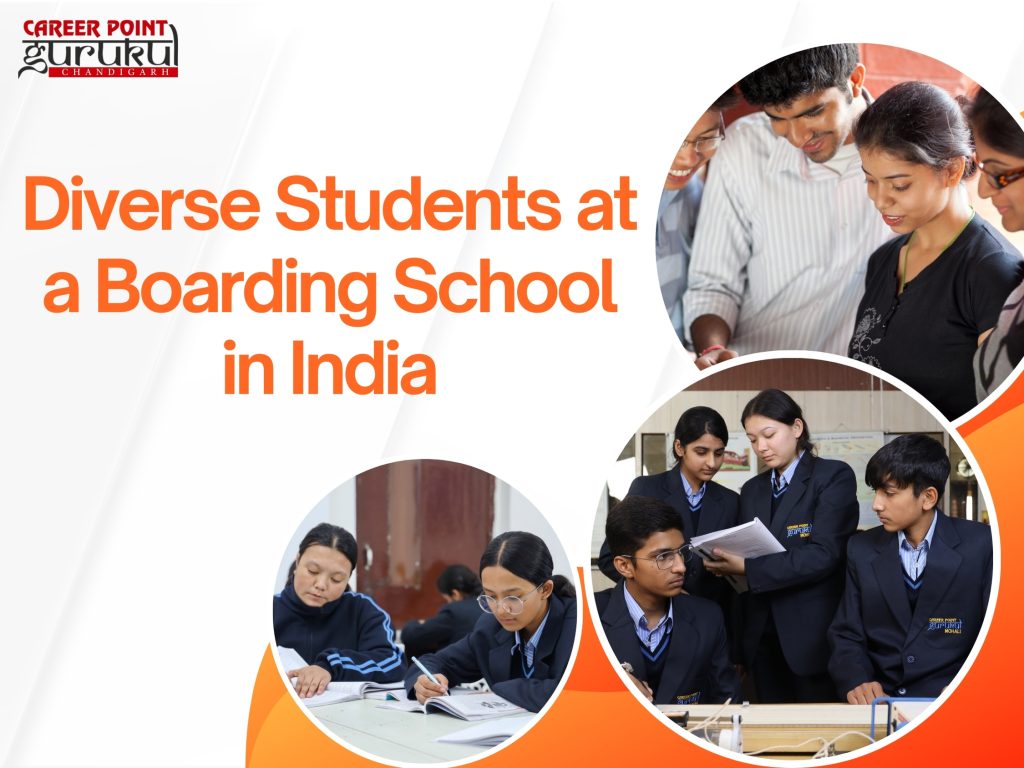
Truth: Quality residential education is increasingly accessible, not just for the ultra-wealthy. Many boarding schools offer scholarships, financial aid or sliding-scale fees so that deserving students can attend. According to a recent guide, “many Indian boarding schools offer scholarships and financial aid” – both merit-based and need-based – to help families manage costs. Schools often set aside funds to attract talented students from diverse economic backgrounds, so there are always boarders from middle-class or modest families. In fact, BoardingSchoolsOfIndia points out that a school “does not have to be wealthy” to send a child to a residential program. These schools see it as an investment in a child’s future, and they regularly award bursaries or fee concessions.
Career Point Gurukul, for example, provides various merit scholarships and occasional fee discounts. More broadly, schooling costs vary widely; some of the best boarding schools in India actually pride themselves on inclusivity and cultural diversity rather than exclusivity. In short, “only the rich” is a myth – accessible options and support programs make boarding schooling a reality for many middle-class families.
Myth #5: Boarding Schools Only Focus on Academics (No Holistic Development)
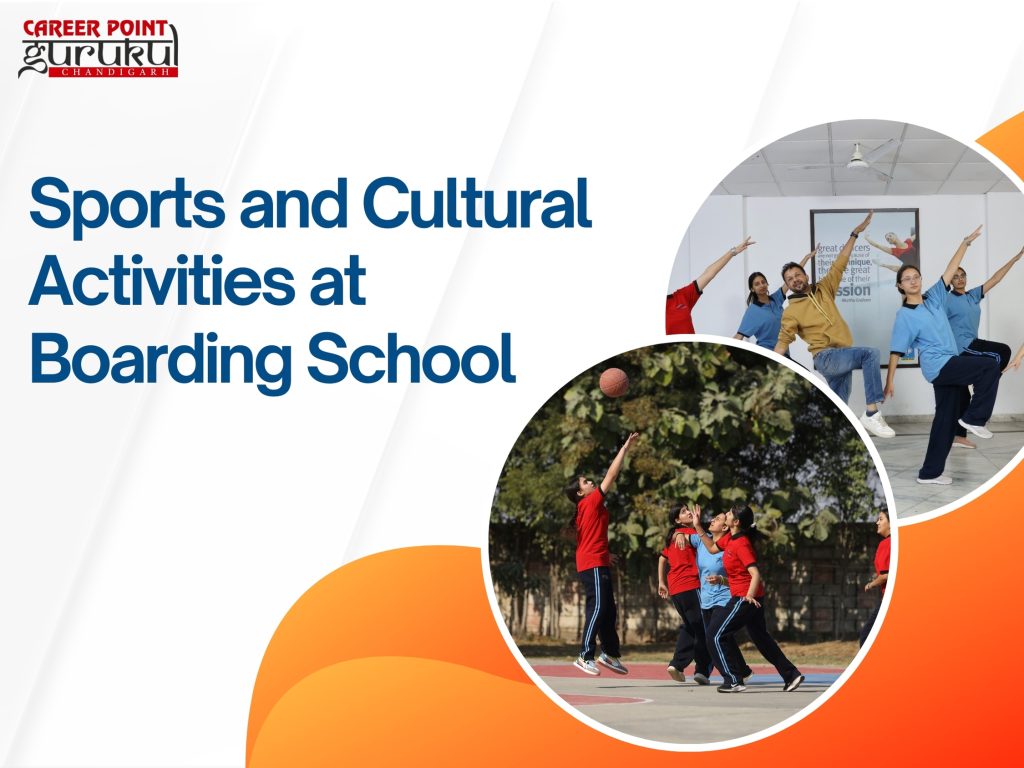
Truth: Just the opposite. Today’s boarding schools emphasize holistic education – blending strong academics with sports, arts, culture and life skills. Students follow a full schedule that includes not only CBSE or IB classes, but also games, clubs, arts and character-building activities. For example, CP Gurukul explicitly states it “nurture[s] academic excellence and holistic growth”. Many schools design clubs for painting, music, drama and debate to let students pursue passions. Team sports, martial arts, yoga and fitness are daily staples. Leadership and service are taught through student governments, house systems and community service projects.
Boarding Schools of India confirms that a boarding curriculum “focuses on sports, extracurricular activities, and individual development”, not just rote study. One blog notes: “While a boarding school will follow a certain curriculum, it also focuses on sports [and] extracurriculars… Boarding school experience is much more than constant study”. In practice, this means children learn time management, teamwork, and creativity alongside math and science. They come home more well-rounded, having done projects, competed in tournaments, and performed on stage – experiences that day schools often struggle to provide all in one place. Career Point Gurukul exemplifies this with its array of clubs, leadership workshops, and creative projects. In short, boarding education aims to raise future leaders, not just test-takers.
Myth #6: Boarding Schools Are Overly Strict with No Freedom or Fun

Truth: Modern boarding life balances structure with choice. Yes, there is discipline – curfews, dress codes and study hours – because safety and fairness demand some rules. But top schools emphasize positive discipline, not draconian restriction. They provide ample free time and choice within a secure framework. For example, The TonsBridge School explains that discipline is a “pillar” but its campus is “moderately structured” and not oppressive. They deliberately “strike the right balance of rules and space” to help students grow, saying that well-designed rules actually “help [students] grow and succeed”.
Likewise, Career Point Gurukul notes that while it has a “disciplined… routine,” students still have independence to explore and pursue hobbies. In practice, this means boarding students have scheduled academics and lights-out times, but also choose clubs, study in the library, play sports, or practice music in the evenings. Weekends are usually open for recreation or approved outings.
- Balanced Routine: Daily schedules are clear but include recreation and club time.
- Supportive Mentors: Housemasters and teachers guide students rather than simply punish mistakes.
- Free Time: Students have personal time for hobbies or relaxation each day.
In short, boarding is not boot camp. It’s a structured yet nurturing life where rules exist to foster independence and responsibility. Students often enjoy freedom to manage their own days (under supervision) – whether that means choosing what sport to play, starting a science club, or organizing a fest.
Myth #7: Boarding Schools Have Outdated Facilities and Lack Modern Technology

ruth: Today’s boarding campuses are often cutting-edge. Classrooms are increasingly “smart” and connected. For instance, many schools use interactive digital boards, e-learning tools and even VR/AR to enhance lessons. As one education blog observes, “the best schools in India are… using technology to impart education… and drive holistic development for students living away from home”. AI tutoring apps, online learning platforms and 3D science labs are common.
Career Point Gurukul describes itself as a “technology enabled campus” with uninterrupted power, ensuring students can learn online anytime. Nearly every top boarding school now touts Wi-Fi dorms, well-equipped labs, audio-visual rooms, and modern sports science facilities. Far from being run-down or old-fashioned, these campuses invest in innovation. Some even have robotics labs or coding clubs. The notion that a boarding school is like an “old hostel” is a myth: in reality, boarding schools pride themselves on new infrastructure (amphitheaters, smart libraries, wellness centers) – just look at the contemporary campus of The White School in Kerala, for example【42†】
Myth #8: Boarding Cuts Children Off from Parents (No Communication)
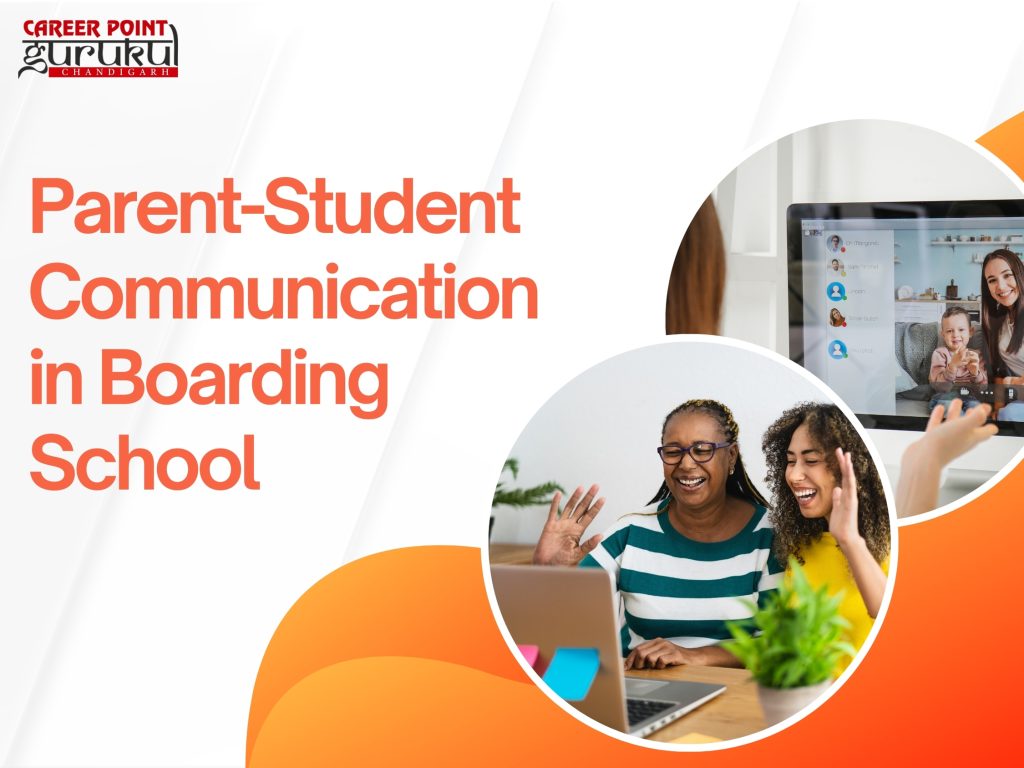
Truth: Quite the contrary – boarding schools actively keep families involved. Far from being “out of sight, out of mind,” many schools have formal channels to keep parents updated. Schools typically hold regular parent-teacher meetings, send out progress reports, and even maintain online portals or apps for real-time grades and attendance. In many Indian boarding schools, families visit on weekends or at least once a term. As The TonsBridge School notes, they “ensure students feel connected with their families,” using technology and meetings so that “parents are informed about their children’s developments”.
In the dorms, rules often allow short daily calls or supervised Internet use. BoardingSchoolsOfIndia points out that with current technology, daily contact is easy: students usually have regulated Internet or phone time and email home frequently. Career Point Gurukul even provides a parent login for live updates and encourages calls and video chats. The result is that parents who hesitate due to “separation” fears often find they communicate as much as ever.
Parents also form their own support networks through school-parent associations, sharing tips and visiting together. In essence, boarding schools build a partnership: the school handles day-to-day care, but parents remain the primary guides. So the myth that sending a child away means losing touch is unfounded – it’s quite the opposite.
Myth #9: Boarding Schools Don’t Prepare Students for Competitive Exams (NEET/IIT-JEE)

Truth: Actually, many top boarding schools in India are built around competitive exam preparation. Especially in exam-centric states, schools often integrate NEET and IIT-JEE coaching into the daily curriculum. Career Point Gurukul is a prime example – it is part of the Career Point Group, famous for its IIT/NEET coaching. The Gurukul boarding school in Mohali offers 24/7 Integrated Coaching for Class 11–12 NEET and JEE alongside regular classes. In other words, students get the advantage of a residential school and the focused exam prep that Mohali is known for.
This trend is growing. Many CBSE boarding schools have tie-ups with coaching institutes or have their own in-house coaches who train boarders after class hours. Parents choosing boarding schools for Classes 11–12 often do so because they want the structured exam prep environment without daily commuting. So the notion that boarders fall behind in entrance tests is false – in fact, they often excel. Schools advertise their Olympiad and exam results. Rather than an either/or, boarding plus coaching can be the best of both worlds.
Myth #10: Boarding Schools Are Not Safe/Appropriate for Girls (or Distrust School Values)
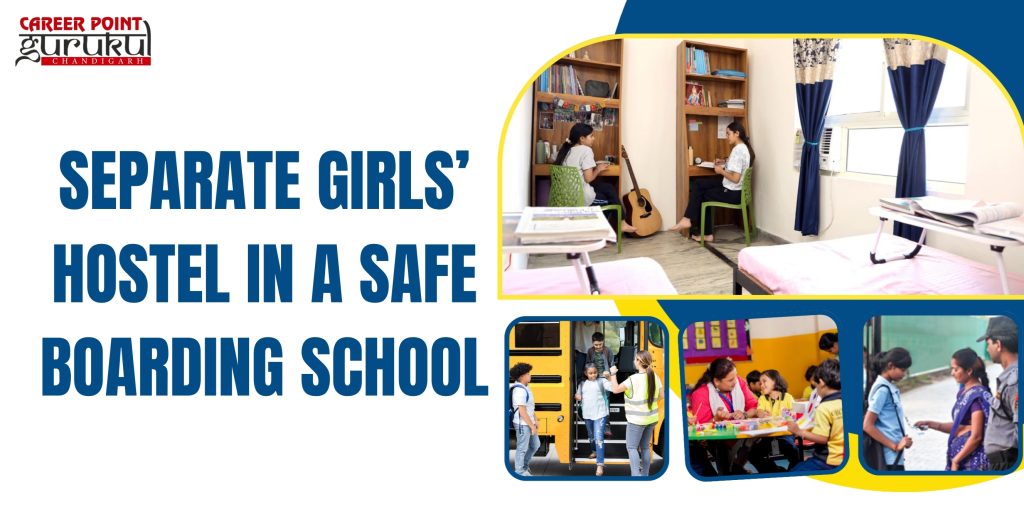
Truth: Safety and values are paramount at any good boarding school – and girls thrive in many boarding environments. In India, some parents worry about sending a daughter away. Top schools address this explicitly. For example, JIRS underscores that “safety is of prime concern” especially when sending a girl child and so it maintains a completely fenced campus and female-only accommodations under 24/7 guard duty. Career Point Gurukul likewise has separate hostels, lady warden staff, and careful supervision for all boarders. Many boarding schools have programs on cultural and ethical values, morning assemblies and moral discussions built into student life.
In practice, girls in boarding schools get all the same benefits and protections as boys. In fact, in a secure boarding environment with caring house-parents and peer support, girls often feel even more encouraged to excel in academics, sports and leadership. As one CP Gurukul parent review notes, the school puts extra emphasis on holistic development – intellectual, emotional and moral – for all students, ensuring they grow into responsible, confident young women. Rest assured: boarding schools today are deeply aware of and sensitive to safety and values, debunking any myth of neglect.
Conclusion

Boarding schools in India today are far removed from outdated stereotypes. They are not “fix-its” for troubled kids, but nurturing communities for motivated students. They are not unsafe or isolating, but secure campuses brimming with friends, mentors and communication channels. They are not expensive relics or one-dimensional grind factories. In fact, the best boarding schools in India (including modern options like Career Point Gurukul) combine excellent holistic education, robust safety, and even top-notch exam coaching into one package. Many offer scholarships to broaden access, and every reputable school goes to great lengths to keep parents informed and children well-cared-for.
In sum, if you’re worried about boarding school myths, remember: Leading residential schools (especially progressive CBSE boarding schools) have evolved to address exactly those concerns. With 21st-century facilities, digital connectivity, and a focus on overall growth, boarding education can be a wonderful launchpad for your child’s future.
FAQ
- Are boarding schools safe? Absolutely. As noted above, boarding schools typically have strict security – fenced campuses, 24/7 guards, CCTV – and trained staff watching over students. Career Point Gurukul, for example, lists round-the-clock security on campus. Schools make safety a priority precisely because parents demand it. In short, you will likely find your child’s boarding school to be one of the safest places of all.
- Will my child be lonely or homesick? Unlikely. Boarding kids quickly find a peer family. They participate in group activities, clubs and sports that build instant friendships. With smartphones or the Internet (monitored by the school) they can call home daily. Most alumni remember boarding school as fun and full, not lonely. Schools also provide counselors and “big siblings” to help new students adjust. So initial homesickness usually fades fast.
- Is boarding education too expensive for most families? Not necessarily. While some elite schools charge high fees, many schools offer financial aid. Numerous boarding schools have merit and need-based scholarships for deserving students. Some even waive fees for academic high-achievers. Career Point Gurukul, for instance, awards scholarships to top scorers in entrance tests. Plus, parents should consider boarding as an investment: you often get academics, tuition, meals, and extras all in one package.
- Will my child still get good coaching for NEET, IIT-JEE, etc.? Yes. Quite the opposite – some boarding schools are specifically designed for competitive-exam prep. Career Point Gurukul, as mentioned, provides integrated 24×7 NEET and JEE coaching alongside CBSE classes. Many other residential schools similarly partner with coaching institutes. Your child can study with peers, attend tutorial classes on campus, and focus fully on their goals without commuting or evening hassles.
Each of these concerns has a straightforward answer: modern boarding schools are safe, supportive, and student-centered. They combine rigorous academics and exam readiness with sports, arts and personal development in a caring residential setting. If you choose a well-run school – for example, a certified boarding school like Career Point Gurukul – you’ll find the environment actually enhances your child’s education and happiness. Your child will be far from alone or at risk; instead, they’ll be part of a structured community that sets them up to thrive.
Sources: Current educational blogs and school websites on Indian boarding schools support these points. (Career Point Gurukul quotes are from the school’s official site.) All myths addressed above are contradicted by the practices of leading boarding schools in India.





